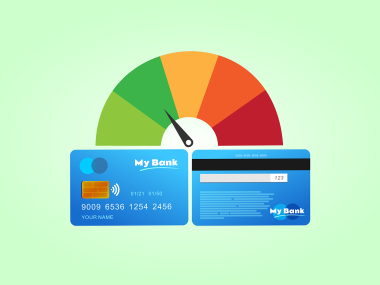Navigating the complex world of credit scores can be bewildering for many consumers. One often stands out among the many questions that arise: What’s the highest credit score possible? Understanding the zenith of credit scoring can help you chart a course toward stellar financial health.
What Is The Highest Credit Score I Can Achieve?
The pinnacle of credit scoring is generally recognized as an 850 score, which stands as the summit for renowned credit models such as FICO® and VantageScore®. Possessing an 850 credit score means showcasing an exceptional creditworthiness profile, signaling to lenders that you epitomize a supremely low risk.
Achieving the elusive 850 requires a meticulous dedication to credit discipline, a diversified mix of credit accounts, and a persistent track of responsible credit behavior. Though reaching this peak is uncommon, it is not necessarily the only goal; credit scores above 800 fall into the ‘excellent’ category and typically unlock the same benefits.
Here are some key steps to maintain and perhaps one day reach that elusive 850:
- Pay your bills on time: On-time payments are a fundamental tenet of credit health.
- Keep credit utilization low: A small portion of your available credit can show lenders responsible usage.
- Consistently monitor your credit reports: Ensuring your credit report is error-free can prevent unwarranted dings to your credit score.
While reaching for the stars credit-wise is admirable, it’s crucial to sustain practical and good credit habits to foster a robust financial standing in the long run.
How Is The Highest Credit Score Calculated?
The mechanisms behind calculating the highest credit score evoke much curiosity. Credit scoring models take into account an array of factors:
- Payment history: This is the heart of your credit score, comprising 35% of the FICO score calculation.
- Credit utilization: A close second in importance, this makes up 30% of the FICO score. A low credit utilization ratio demonstrates a capable handling of credit.
- Length of credit history: With 15% weightage in the FICO calculation, this facet celebrates consumers who have nurtured credit accounts over lengthy periods.
Navigating the nuances of your credit score calculation can be complex. Still, knowledge of the critical components that sculpt your credit score will arm you with the ability to optimize it.
Does Having The Highest Credit Score Guarantee I’ll Get Approved For Loans Or Credit?
A credit score shimmering with perfection—850—does not give its holder an automatic green light for credit approvals. Lenders employ a more holistic approach when scrutinizing applications:
- They delve into your income, employment track record, and overall debt-to-income ratio.
- While a high score might radiate a glow of past financial prudence, it’s a historical snapshot that may not mirror your current monetary state.
- Unique requirements set by certain credit products may necessitate qualifications beyond a pristine credit score.
Understanding that an 850 score is not a golden ticket for loan or credit approval will help temper expectations and motivate a focus on overall financial health.
What Factors Can Help Me Reach The Highest Credit Score?
Implementable actions can fuel ambition to reach the credit score summit:
- Timely Payments: Cement has a reputation for punctuality in bill settlements.
- Manage Credit Utilization: Be judicious in your use of available credit.
- Credit Diversity: The presence of various forms of credit bodes well for your scoring potential.
- Credit Longevity: Value older credit accounts as they contribute to the depth of your credit history.
- Strategic Credit Applications: Avoid a rapid succession of credit inquiries or new accounts, which might briefly weaken your score.
Steering these controllable factors in a favorable direction can set sails toward achieving and maintaining the highest credit score possible.
What Is A Good Credit Score For My Age
Understanding the highest credit score possible can be pivotal in achieving financial excellence. Still, it’s also important to consider what qualifies as a good credit score within your age group.
As you navigate through different life stages, financial behaviors and credit responsibilities evolve, which influences what’s considered a good credit score for your age. For young adults just starting, a score above 680 can be an excellent foundation that reflects responsible credit usage and management.
As individuals progress into their 30s and 40s, they often have more credit history, leading to scores in the ‘very good’ range, typically around 700-750, if managed wisely.
For those 50 and older, who might benefit from longer credit histories and potentially higher scores, a score above 800 is often considered exceptional, placing them in the most favorable light for credit opportunities and the best interest rates.
Whatever your age, understanding where you fall on the credit score range and how you can improve it is essential for financial health and achieving your monetary goals.
Now, let’s delve deeper into what the pinnacle of credit scoring looks like and how reaching the highest credit score possible can unlock numerous financial advantages.
Average Credit Score By Age
As we’ve established the average credit score by age, it’s important to understand the peak potential of our creditworthiness. What’s the highest credit score possible?
The answer might motivate you to improve your personal finance habits. In the world of credit, a perfect score is akin to financial nirvana. The highest score offered by the most commonly used credit scoring models – FICO and VantageScore – is 850.
This pinnacle of credit scoring is a testament to impeccable credit management, reflecting a borrower’s exemplary responsibility in handling debt and making timely payments.
Achieving the highest credit score requires a mix of prudent financial behavior, such as maintaining a low credit utilization ratio, a long history of diverse credit accounts, and a spotless track record of payments.
However, reaching and maintaining a credit score of 850 isn’t necessary to access the best lending terms; scores considerably lower can still qualify you for the best interest rates and credit products.
Understanding the key factors contributing to a top-tier credit score can empower you to make informed decisions to enhance your financial well-being, regardless of age.
How To Get The Highest Credit Score
Achieving the highest credit score possible—typically a perfect 850 on the FICO scale—requires a strategic and disciplined approach to managing your credit. To move closer to this credit pinnacle, it is essential to maintain a flawless payment history, as on-time payments are a major factor in credit scoring models.
Keeping your credit utilization ratio low, ideally under 10%, demonstrates to lenders that you handle credit responsibly without relying too heavily on it.
It is also advisable to have a diverse mix of credit accounts, such as credit cards, car loans, or mortgages, to enhance your credit profile. Long credit history plays a significant role, so it pays to keep older accounts open and active.
But remember, few actually score 850, and most lenders consider anything above 760 to be excellent, offering the same access to the best rates and terms. Whether striving for perfection or simply aiming to improve your score, following these steps will set you on the path towards stellar creditworthiness.
What Is An Excellent Credit Score
An excellent credit score is typically defined as a FICO score of 740 or above, or a VantageScore of 700 or higher. This tier of credit scoring signifies to lenders that you’re a very dependable borrower, which increases your chances of obtaining loans with the most favorable interest rates and repayment terms.
But while achieving an excellent credit score is a financial feat, you might wonder what sits at the top of the credit score range. The highest credit score possible is an elusive, yet attainable, goal for the financially astute.
In the subsequent sections, we’ll delve into the pinnacle of credit scoring, explore how to reach and maintain the highest FICO and VantageScore attainable and discuss the benefits of striving for credit score perfection. Stay tuned to understand the nuances of the credit score scale and how to stand out as a credit consumer.
Building Your Path to the Top of the Credit Mountain
As we dissect the layers of obtaining and maintaining a stellar credit score, it’s evident that the highest level of credit excellence—850—is attainable, albeit with disciplined financial conduct and an intimate understanding of credit score mechanics. While perfection in credit scoring is a lofty aim, ingraining exceptional credit habits is the true victory.
Remember, the journey toward the financial pinnacle is not about chasing a number but about nurturing a solid foundation of creditworthiness that stands the test of time and circumstance. Embrace the habits that beacon toward a great credit score and a sound financial future.






